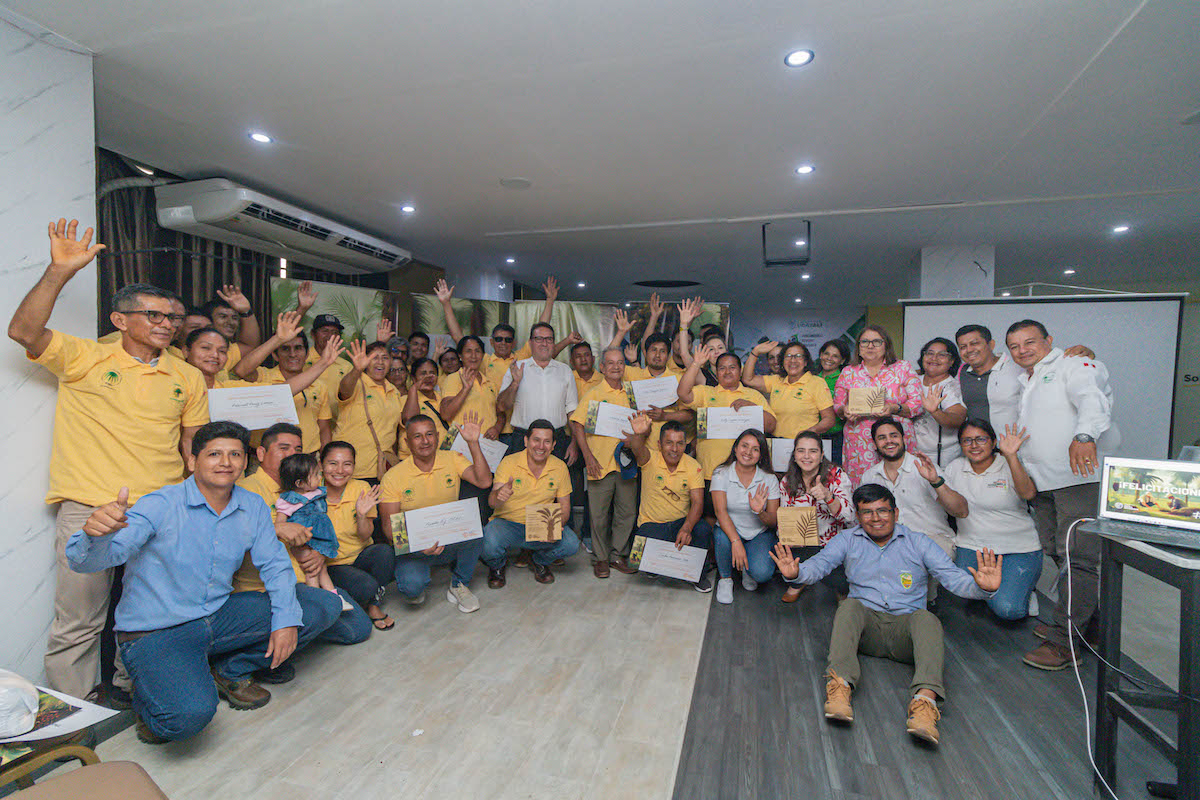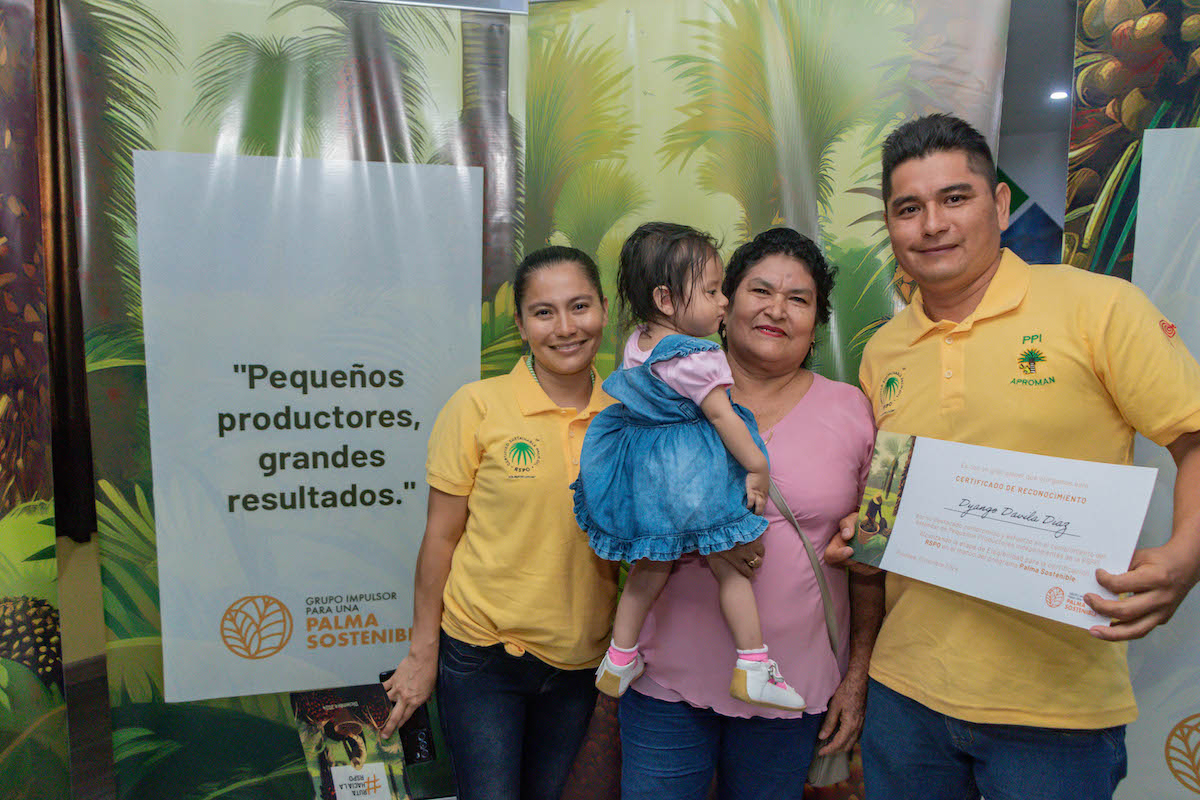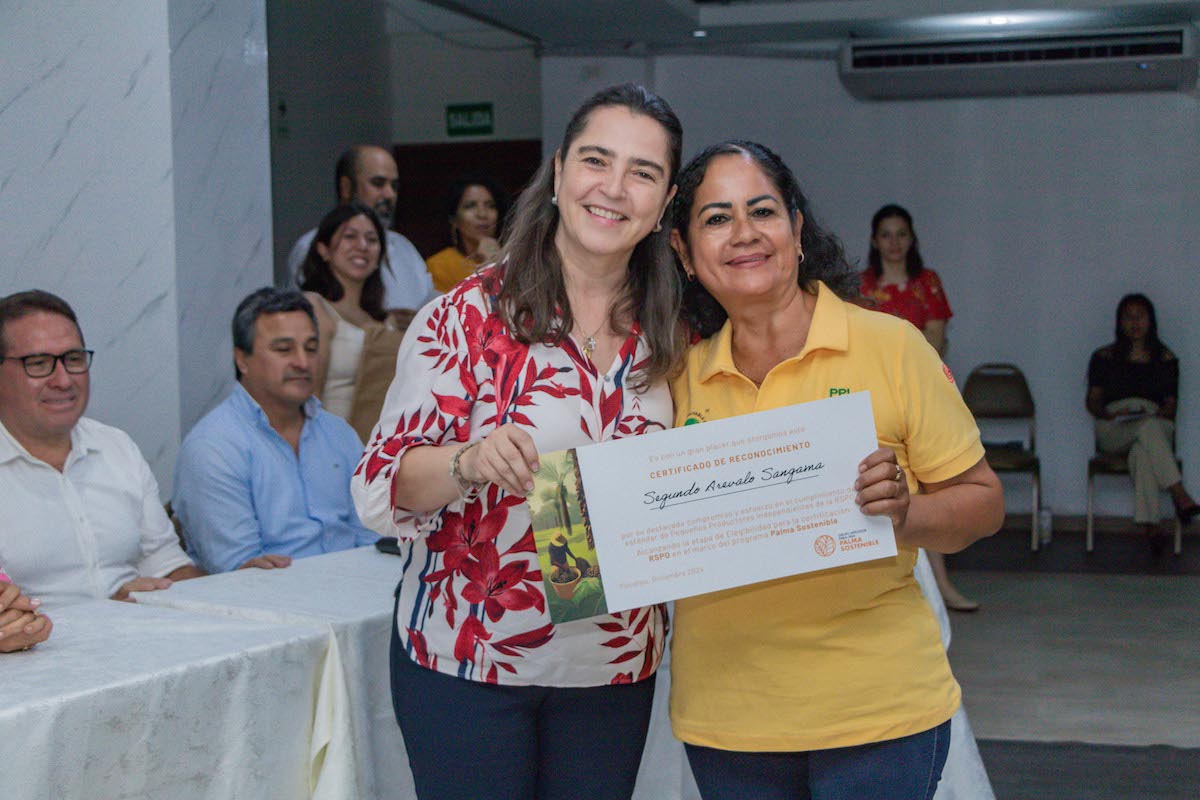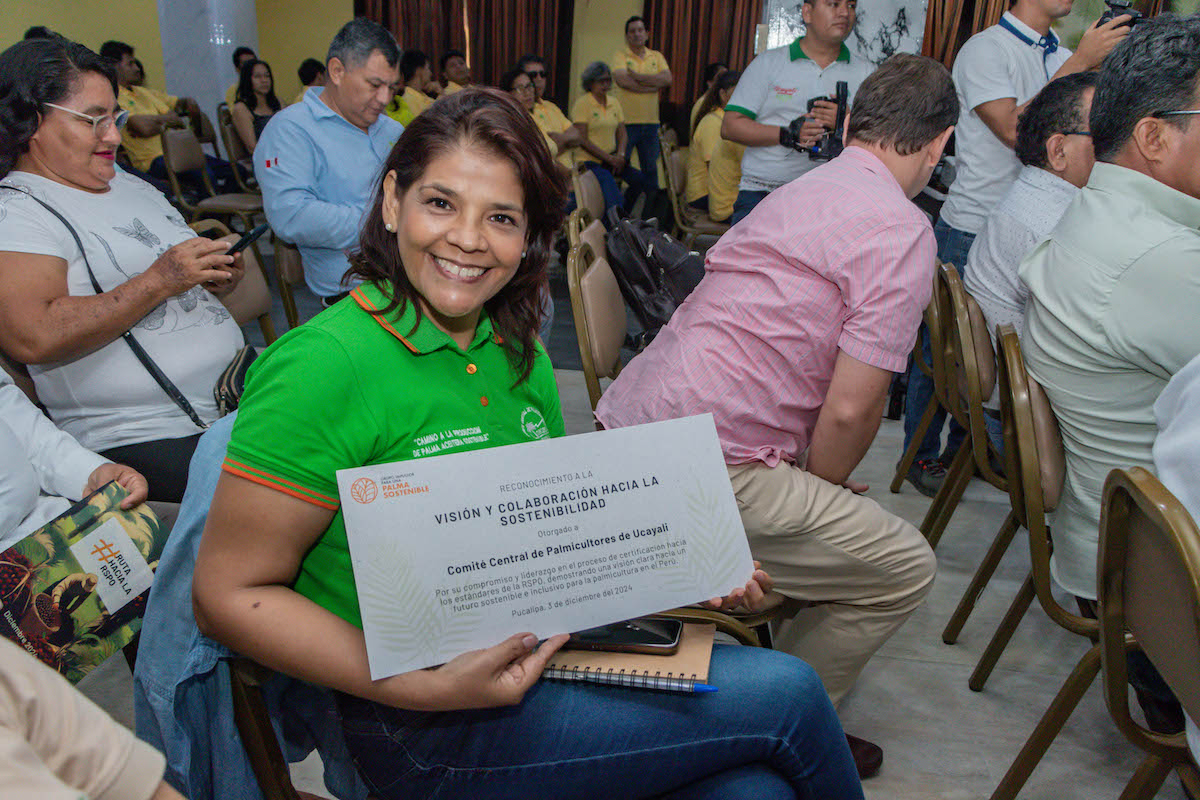Ucayali, Peru – December 19, 2024 – The Association of Palm Producers of Monte Alegre Neshuya (APROMAN) has become the first group of independent smallholders in Peru to achieve eligibility for certification by the Roundtable on Sustainable Palm Oil (RSPO). This milestone underscores the commitment of Peruvian producers to sustainability and the highest international standards in palm oil production.
This achievement is not an isolated event but the result of intense collaboration under the Sustainable Palm Program, a joint initiative by Alicorp, Solidaridad, and NES Naturaleza. Since its inception, the program has aimed to provide small palm producers in Peru with the knowledge, tools, and support needed to transform their agricultural practices into sustainable and responsible models, increasing productivity and ensuring efficient resource use.
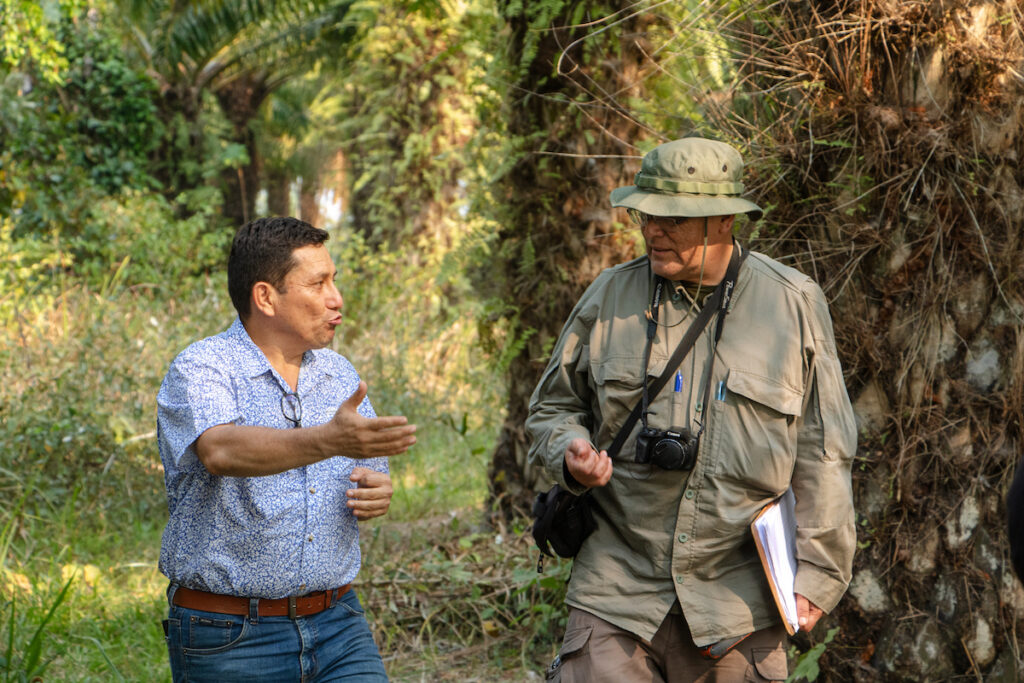
Alicorp, a key player in this process, has been instrumental in ensuring that local producers not only meet the requirements for RSPO certification but also improve their competitiveness in an increasingly demanding market.
“Implementing sustainable practices within our supply chain has been a firm and necessary commitment, especially in a sector like palm, where it directly impacts the economy and well-being of small farmers,” said Ian Nightingale, Corporate Manager of Sustainable Development at Alicorp.
Building capacity for sustainability
Through the Sustainable Palm Program, technical training and the implementation of digital traceability tools have been prioritized. These are essential for ensuring that palm production is verifiable, deforestation-free, and competitive in the market while delivering tangible benefits to producers and their families. These efforts have enabled APROMAN to advance in implementing RSPO standards, bringing them closer to full certification for their independent producers.
The joint effort among organizations, producers, and companies in this supply chain is proving that sustainability in palm oil production is achievable and beneficial for everyone.
Lesly Vera, Palm Programme Manager at Solidaridad in Peru
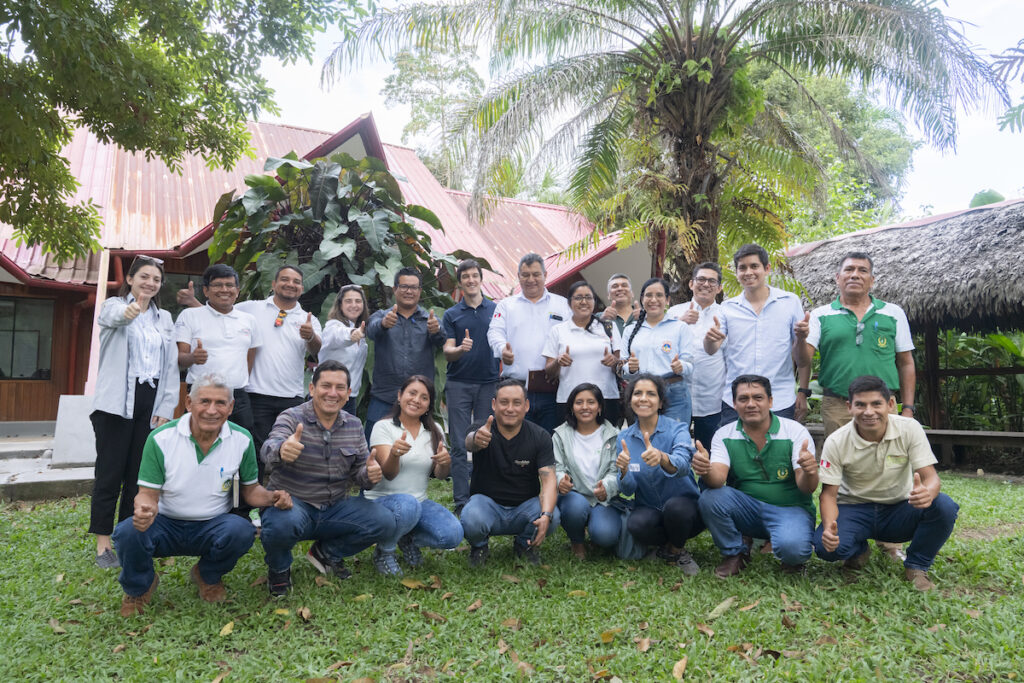
Additionally, the program has worked to involve women and youth in the supply chain, further enhancing the project’s social impact by promoting equity and inclusive development in producer communities.
A model for the region
APROMAN’s success in achieving RSPO certification eligibility represents a significant step toward more sustainable palm production in Peru and across Latin America. RSPO, renowned for its holistic and inclusive certification process, validates the practices of producers who adhere to the highest standards in environmental protection, human rights respect, and product quality and traceability.
This progress positions the Ucayali region as a leader, with the highest number of organized producers and associations in the country. Many of these groups are shareholders in crude palm oil and palm kernel processing plants, where they are already implementing sustainability processes such as RSPO standards, circular economy practices, and on-farm forest conservation.
Alejandra Rueda of NES Naturaleza noted, “One of the greatest lessons learned from this process is that we must trust small producers because when we believe in them, real change happens.”
No sustainable palm without small producers
The RSPO certification process has also had a direct impact on the lives of APROMAN’s producers. They have seen significant improvements in farm management, cost efficiency, crop quality, and income levels, driven by gradual productivity increases and certification premiums. Certification has opened the door to more responsible markets that prioritize sustainable, deforestation-free palm oil.
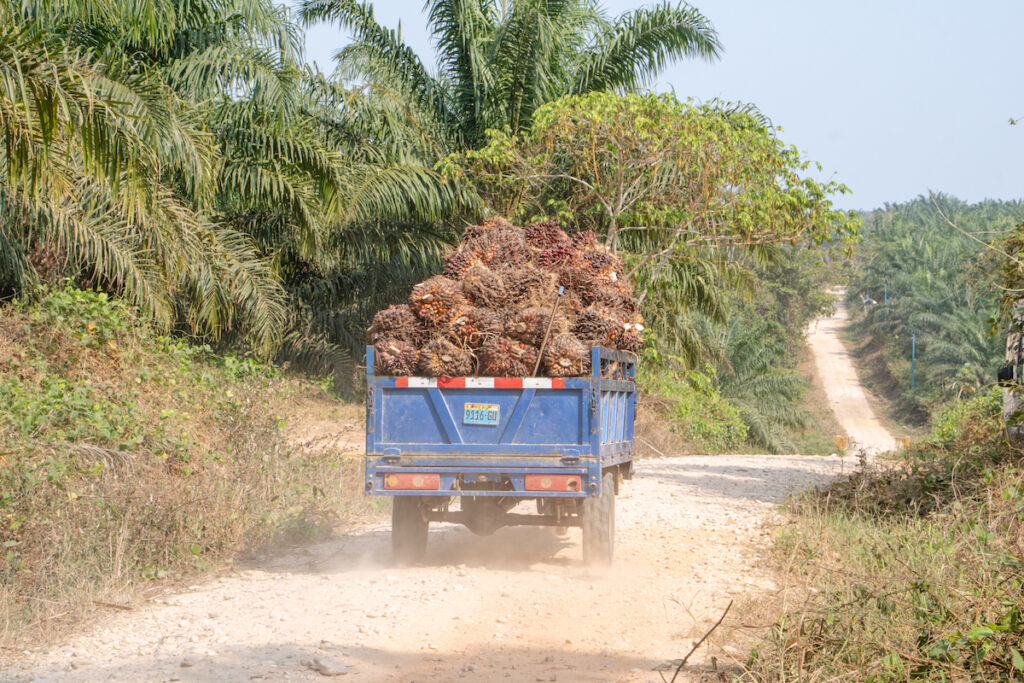
“Traceability, once seen as a challenge, has now become a tool of trust for our producers, reinforcing our commitment to a more transparent and ethical business model,” stated Pedro Seijas Cárdenas, Technical Manager of APROMAN. Recently recognized by RSPO and appointed as an alternate member of its Board of Governors, Pedro now represents Latin America in promoting sustainable palm cultivation among small farmers.

